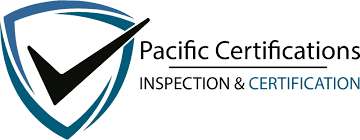ISO Certifications for Money Market Dealers, Requirements and Benefits

Quick Summary
Money market dealers operate in a highly sensitive financial environment where efficiency, security, and compliance are essential. ISO certifications provide a structured way to manage these demands. ISO 9001 ensures service quality and reliable processes, while ISO/IEC 27001 protects confidential financial data. ISO 22301 helps maintain operations during disruptions, and ISO 31000 supports structured risk management. For sustainability and compliance, ISO 14001, ISO 19600, and ISO 55001 are also applicable. Certification requires documented systems, internal audits, leadership commitment, and third-party assessments. The benefits include stronger client trust, risk reduction, operational consistency, and greater credibility in a competitive financial marketplace.
Introduction
When considering ISO certifications for Money Market Dealers, it's essential to identify the standards that are most relevant to their operations. Money Market Dealers are involved in financial services, dealing with short-term financial instruments and activities like lending, borrowing, buying, and selling with short maturities.
The nature of their work involves risk management, data security, quality management, and environmental considerations. Here are some applicable ISO standards:
ISO 9001 - Quality Management Systems:
This is a fundamental standard for any organization looking to ensure quality in its processes, products, and services. For Money Market Dealers, ISO 9001 can help in streamlining operations, improving client satisfaction, and enhancing operational efficiency. It focuses on meeting customer expectations and delivering consistent performance.
ISO 27001 - Information Security Management Systems:
Given the sensitivity of financial data handled by Money Market Dealers, ISO 27001 is crucial. This standard helps in establishing, implementing, maintaining, and continually improving an information security management system. It also includes requirements for the assessment and treatment of information security risks tailored to the organization's needs.
ISO 31000 - Risk Management:
While not a certifiable standard, ISO 31000 provides guidelines on managing risk faced by organizations. For Money Market Dealers, who deal with various financial risks, this standard can guide the establishment of a robust risk management framework, helping them make informed decisions under uncertainty.
ISO 22301 - Business Continuity Management Systems:
This standard is vital for ensuring the resilience and continuity of operations in the event of disruptions, such as financial crises or market instability. For Money Market Dealers, ISO 22301 can help in minimizing the impact of disruptions on their operations and maintaining business continuity.
ISO 14001 - Environmental Management Systems:
While this might not seem directly related to the core activities of Money Market Dealers, an increasing focus on sustainability and responsible investing makes ISO 14001 relevant. It helps organizations improve their environmental performance through more efficient use of resources and reduction of waste, gaining a competitive advantage and the trust of stakeholders.
ISO 19600 - Compliance Management Systems:
This standard provides guidelines for establishing, developing, implementing, evaluating, maintaining, and improving an effective and responsive compliance management system within an organization. For Money Market Dealers, adhering to various financial regulations and standards, ISO 19600 can be particularly relevant.
ISO 55001 - Asset Management:
This standard is about the effective management of assets, both tangible and intangible. For Money Market Dealers, managing financial assets efficiently is key to their success, and ISO 55001 can provide a structured framework for optimizing the performance of these assets.
Click here to find out more applicable standards to your industry
For Money Market Dealers looking to obtain these certifications, we at Pacific Certifications can offer tailored guidance and support. With expertise in various ISO standards, we can assist in the certification process, ensuring that the Money Market Dealers not only achieve certification but also gain real operational benefits from adhering to these standards.
Our team at Pacific Certifications can be contacted at [email protected] for more detailed assistance and to initiate the certification process.
Requirements & benefits of ISO certifications for Money Market Dealers
ISO certifications for Money Market Dealers come with a set of requirements that need to be fulfilled, and they offer numerous benefits that can significantly enhance the operational, financial, and reputational aspects of these businesses. Let's delve into the requirements and benefits of some key ISO certifications relevant to Money Market Dealers:
ISO 9001: Quality Management Systems
Requirements:
Establishing a Quality Management System (QMS): Implement processes and procedures that meet the ISO 9001 standards.
Leadership Commitment: Top management must demonstrate commitment to the QMS, ensuring resources are available, roles are assigned, and quality policies are established.
Risk-based Thinking: Integrating a risk management approach into the process planning to enhance the effectiveness of the QMS.
Continuous Improvement: The organization must continually improve its processes and QMS.
Benefits:
Enhanced Operational Efficiency: Streamlining processes leads to more efficient operations.
Improved Customer Satisfaction: Consistently meeting customer requirements boosts satisfaction and trust.
Market Competitiveness: Certification can be a differentiator in the competitive financial market.
ISO 27001: Information Security Management Systems
Requirements:
Risk Assessment: Identify information security risks and vulnerabilities in the organization.
Information Security Policies: Develop policies for information security management.
Staff Training and Awareness: Ensure all employees are aware of and trained in their information security responsibilities.
Incident Management: Establish procedures to manage and report information security breaches.
Benefits:
Data Protection: Enhanced security measures protect sensitive financial data.
Client Confidence: Demonstrates to clients that their data is secure, building trust.
Regulatory Compliance: Helps in complying with data protection laws and regulations.
ISO 31000: Risk Management
Requirements:
Risk Identification and Assessment: Identify and evaluate risks that could impact the organization.
Risk Treatment: Implement measures to mitigate identified risks.
Monitoring and Review: Regularly review and monitor the risk environment and the effectiveness of risk treatment actions.
Benefits:
Improved Risk Management: Better understanding and management of financial and operational risks.
Informed Decision-making: Decisions are made with a clear understanding of risks.
Resilience: Enhances the organization's resilience to market changes and disruptions.
ISO 22301: Business Continuity Management Systems
Requirements:
Business Continuity Policy: Develop and implement a business continuity policy.
Business Impact Analysis (BIA): Identify critical business functions and the impact of their disruption.
Continuity Strategies and Plans: Develop strategies and plans to ensure the continuity of critical functions.
Benefits:
Operational Resilience: Ensures continuity and recovery in the event of disruptions.
Stakeholder Assurance: Provides confidence to stakeholders in the organization’s resilience.
Competitive Advantage: Can provide an edge over competitors not prepared for disruptions.
General Benefits Across All ISO Certifications
Regulatory Compliance: Helps in meeting various legal and regulatory requirements.
Improved Reputation: Certification is often viewed as a mark of quality and reliability.
Access to New Markets: Certain markets or clients may require suppliers to be ISO certified.
Conclusion
For Money Market Dealers, meeting these requirements and reaping the benefits of ISO certifications can be a significant step towards enhancing their business performance and market position. We at Pacific Certifications can assist in navigating the complexities of these standards, providing expert guidance and support throughout the certification process.
By ensuring compliance with these standards, Money Market Dealers can not only improve their internal processes but also strengthen their market presence and client trust.
Contact Us
Pacific Certifications is accredited by ABIS, in case you need support with ISO certification for your business, please contact us at [email protected] or +91-8595603096.
Read more: Pacific Blogs
